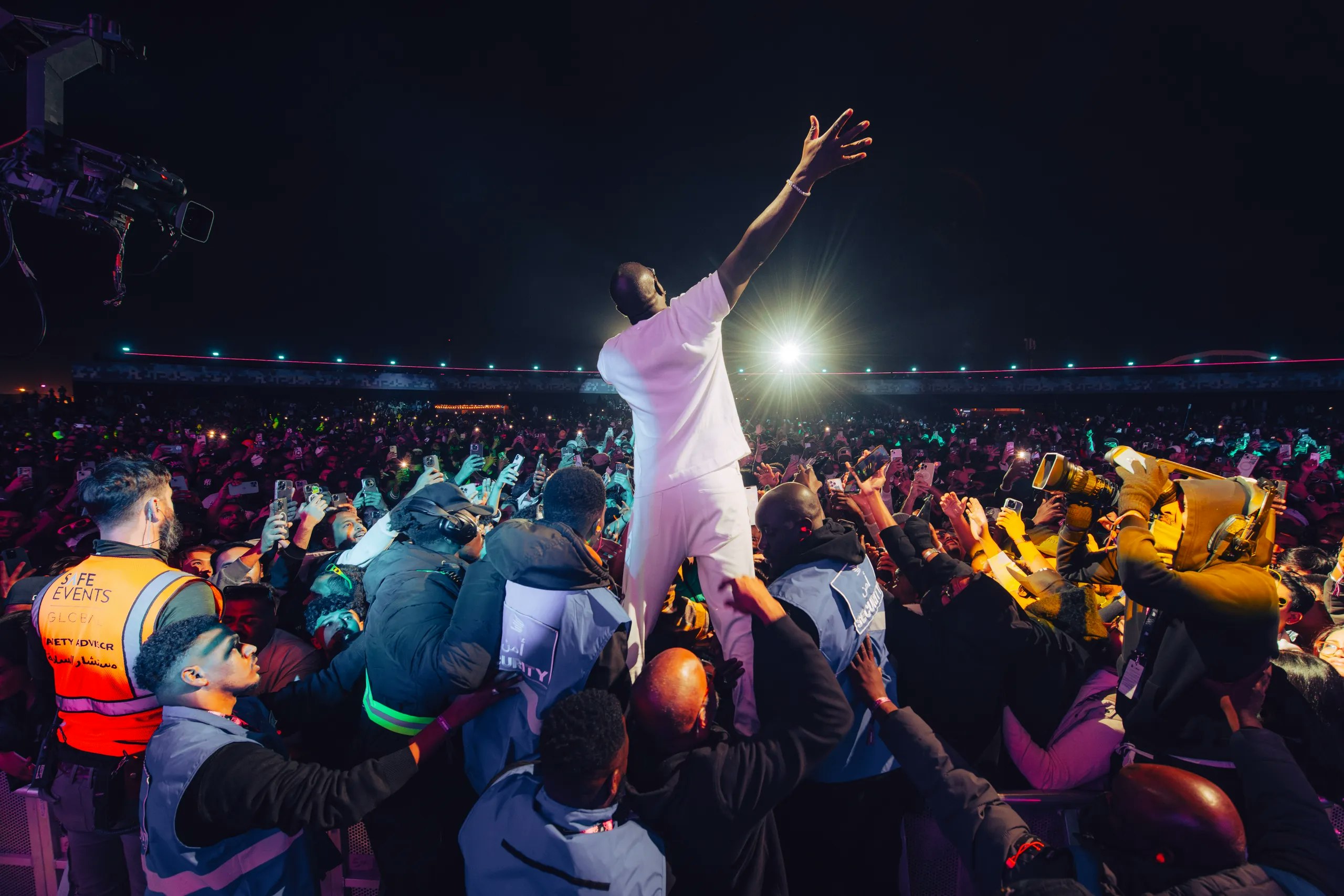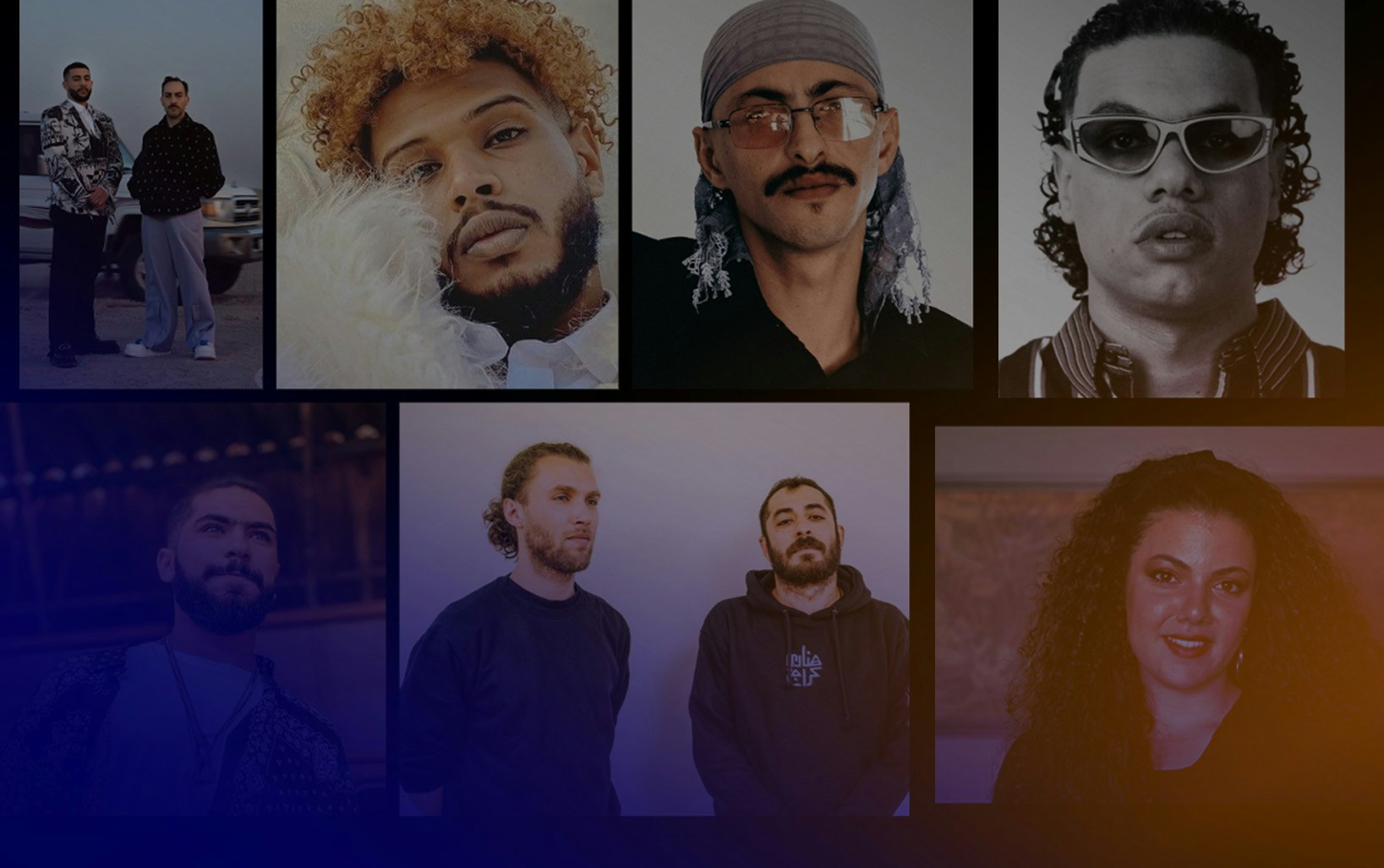

How the Music Industry is Breaking Records in MENA Region
بواسطة Scene Noise x XP News
ي 02 2024
How the Music Industry is Breaking Records in MENA Region
بواسطة Scene Noise x XP News
ي 02 2024
Entrepreneurs are waking up to the fact that the Middle East is home to a thriving music
scene. According to the Global Music Report 2022 by the International Federation of the
Phonographic Industry (IFPI), the MENA region recorded a 35% in music revenues in
2022, making it one of the fastest growing music markets in the world.
This growth is not limited to growing genres of music coming out from the region, such
as Arabic rap and Khaleeji pop. Increased streaming, which accounted for 95.5% of
revenue in 2022 according to the same report, coupled with overwhelming social media
consumption, is spurring MENA’s explosive music scene.
“The growth is partly attributed to the amount of technology platforms that are setting
up their base here,” Albert Carter, Founder of AudioSwim, tells SceneNoise. “When I
first moved to the region eight years ago, there wasn`t a Spotify here, there wasn`t a
TikTok, and there wasn’t a Deezer. None of that existed. So, we saw that expansion of
growth come with the DSPs [digital service providers] actually planting their seeds here,
whether it`s in Lebanon, the UAE, Egypt or Morocco.”
المزيد في صناعة الموسيقى


تأثير وسائل التواصل الاجتماعي على اكتشاف الموسيقى

منصات بث تدعم من الأصوات العربية الصاعدة
SEEING A MARKET NEED
One of the ways that startups are entering the music industry is by identifying market
opportunities, particularly at a time when the sector is still considered nascent.
For AudioSwim, a UAE based digital music distributor, seeing a market need was key to
launching the startup. “One of the things that inspired me to start AudioSwim was the
fact that when I first came here, the music scene was pretty much non-existent,” says
Carter. “Yes, there were musicians, and yes, there were venues, but it really wasn`t a
music industry per se. And one of the things that I realized is, at the time, there were no
distributors here.”
Jumping on the opportunity to fill in a market gap, Carter created a distributor platform
to help artists make money off their music. One of the ways he does that is by cost-
effectively selling and streaming music through DSPs.
“Since there were no distributors here, anything that's distributed outside of the US is
subject to tax,” he says. “But over here, we live in a tax-free zone. It just made sense. If
somebody was streaming, why would they be subject to a tax because they`re
distributing through a company that`s based in America?”
Meanwhile, Egyptian music startup SoundSauce was launched after its founders saw a
market opportunity in the region. Founded on the backbone of sourcing authentic music
for filmmakers, local and international clients, the startup expanded to support talent
development in the Middle East.
“Through SoundSauce, we amplify the Arab sound globally, and showcase Arab talent,”
says Nirvana Bibars, Co-Founder and CEO of SoundSauce. “At the same time, we realized
that a lot of the producers and artists lack talent development. This is something that is
really needed here in the Middle East. So, we also started working on that in terms of
arranging fashion brand deals, content, PR, and bookings, as well as positioning talent in
different regional and international festivals.”
MAKING MONEY
Just like there are opportunities in a nascent sector, there are also challenges. And one
of these challenges is the monetization of music.
It’s an open secret that streams don’t provide much money for artists. Streaming
companies pay pennies per stream, ranging from an estimated $0.01284 to $0.0011 per
stream, depending on the platform. That’s why marketing is crucial for artists.
“If you look at international artists, most of their revenue doesn’t come from music, it
doesn’t come from streams,” explains Bibars. “Because when it comes to streaming
platforms, their financial models are very complicated, and to make money you need to
get billions of streams. It’s not a sustainable model of income. Most people get their
income from ads, brand deals and merchandise. I think this is an opportunity that many
artists aren’t aware of or pay attention to. But it’s there and it’s growing.”
Hady Hajjar, CEO of Humanagement, a talent agency for regional artists, states that
artists and music businesses must be in it for the long haul, since one song or one album
is rarely profitable. “Unfortunately, until this moment, I can assure you there`s no artist
or album that can break even,” he says. “The sources of revenue that you get from
releasing an album, including the video clip, monetization from digital platforms and
streaming platforms, a little bit of live shows and concerts, publishing rights, all of these
together cannot recuperate the amount spent on an album.”
Hajjar says that the more songs and albums an artist produces, the better chance they
have of breaking even. This also goes for businesses and startups supporting artists.
“You need to have a long-term plan,” he adds.
Despite this, international investors seem to be eyeing the region. Last year, Universal
Music Group (UMG) acquired Chabaka, a UAE-based music company, and in 2021 it
invested in Rotana Music, one of the Middle East’s largest record labels. In addition, in
2022, US company Reservoir Media acquired Egyptian label 100 Copies.
DIVERSIFYING AND GOING GLOBAL
For the industry to reach its full potential, however, it seems that Arabic music needs to
go global. Just like Latin music achieved global success and fame, the same can also be
possible for Arabic music.
“I think there needs to be a push from everyone who works in this business to push the
genre outside of the region,” says Bibars. “This is what Latin music did. They pushed the
artists abroad and governments invested in festivals, concerts, features, and awards,
because it’s a huge revenue stream as well. We’re getting there, but I think there needs
to be a more consistent push, and more diversity in the genres that are coming out.”
Indeed, the region is already boasting several music festivals each year, and with more
international events on the way like the Expo 2030 and the World Cup in 2034 - which
will both be hosted in Saudi Arabia - the region’s music and entertainment industry is
bound to receive more global recognition. “These events will have a wider reach and
will create more diverse libraries of music,” says Hajjar. “The record labels, the
management, the publishers, and the artists will definitely benefit from all these
experiences of having an international audience.”
For Mariam Almatary, Co-Founder of Funank, a Saudi-based online marketplace for
finding and hiring artists, such events and festivities will create opportunities for
musicians and other artists to emerge in the region. Although the startup mainly works
in sourcing talent and performers for weddings, birthdays and festivals, she believes
that this will have a spillover effect, exposing more talent in the region, and ultimately
diversifying the sector.
“I think the music industry will not only grow, but expand in so many different ways
where it’s not only focused on music festivals or musicians,” she says. “There are a lot of
types of entertainment and art, from a musician performing down the street, or
someone who’s creating their own music and selling it locally, to other types of artists
like painters, photographers and live performers.”
The key is for this trend to continue. With the region, particularly Saudi Arabia,
continuing to support and invest in this sector, it looks like this growth will carry on for
years to come. “There is definitely a lot of growth momentum,” says Almatary. “And I
think that is going to be there for a while.”
شارك
